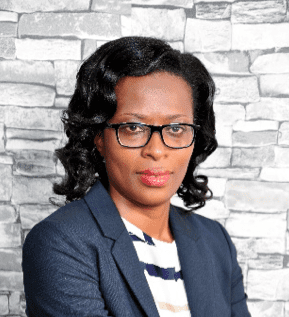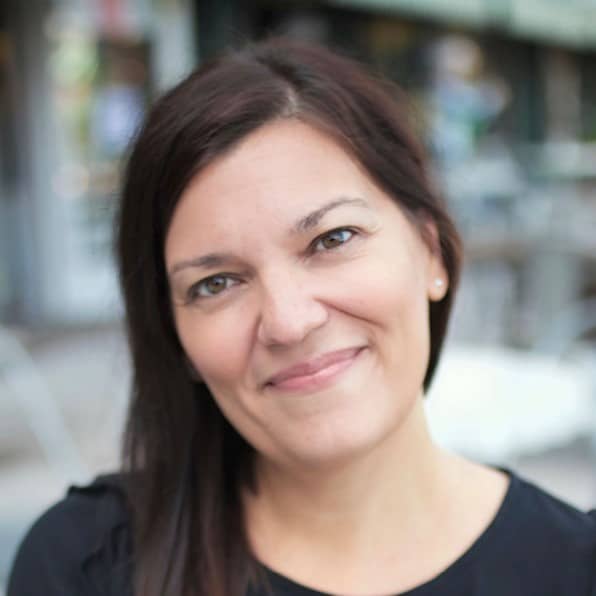This time last year, right before COVID-19 exploded across the globe, World Relief’s International Programs leadership team came together for a weeklong global gathering in Musanze, Rwanda. As sisters and brothers from 11 different countries came together — Haiti, Cambodia and Kenya to name a few— we broke bread, prayed and celebrated all that God has done through World Relief in our 75 years of service.
While the entire week was filled with rich fellowship and deep strategic conversation, there was one particular day that impacted the three of us greatly. On that day, we focused our learning and discussions around the theme of gender equality. World Relief leadership presented our top strategic goals, one being greater gender equality both within our offices and across our programs.
To our great encouragement, everyone in attendance pledged to reaching this goal by 2022 through the following commitments:
- Commitment of Leadership: Leadership in each country office understands and prioritizes gender equality not only through their own actions, but addresses gaps recognized organizationally and programmatically.
- Gender Balanced Leadership: Increased gender balance in leadership roles at all levels of World Relief staffing. This is manifested by an increased proportion of women in all staff roles with special focus on most senior roles. Women are intentionally developed and included in succession planning and policies reflect concern for equality in career development opportunities and in equal compensation and benefits practices.
- A Gender-Sensitive Organizational Culture: World Relief is recognized internally and externally for its gender-sensitive organizational culture.
- A Gender Programming Focus: A gender lens is incorporated throughout the entire programming cycle within World Relief programming. This is manifested by staff being knowledgeable in the basic elements of gender analysis and possessing relevant technical skills to integrate gender in programming.
- An Accountability Framework: An accountability framework is in place organizationally to track progress on gains made in all of the above areas and to inform future action regarding gaps.
As the day folded into evening, the women of Word Relief led us in worship. There were songs, poetry and a devotional from our, then, new Burundi Country Director, Cesalie Nicimpaye, a long-awaited woman among many men. Women danced and sang in every language. This small moment felt to us like a commissioning as the men prayed over us at the end of the evening saying, “Help us see the gift you have given us in the women of World Relief.”
Since then, despite the hurdles that 2020 presented, we have each spent much of our time advocating for gender equality and working tirelessly to see a biblical vision of equal leadership among men and women become the norm across World Relief and beyond.
Today, as we prepare to celebrate International Women’s Day, we celebrate just a few of the outcomes and small beginnings that this commitment has spurred on:
- Every World Relief international office now has a dedicated gender focal point
- Effective June 2020, World Relief rolled out a long-awaited paid maternity and parental leave policy.
- Every World Relief international office has concluded a gender scorecard based upon the work of the Wheaton Network Initiative on Gender, Development and Christianity .
- All World Relief offices are in the process of creating a gender plan, which includes improvements in gender sensitive programming and data collection, recruitment processes and leadership pipelines that target women and better facilities for our female staff.
- All international offices are currently participating in a six-week intensive Development Associates International course, Women and Men Leading Together.
As 2021 brings with it new opportunities for growth in this work, we will continue to challenge for change, creating a better world for women and girls for generations to come. Will you join us?

Clemence Nkulikiyinka has served with World Relief since 2008. Currently she serves as a Technical Advisor for Integral Mission, and one of global gender focal point. She has served in different roles, especially in Rwanda.

As the Director of the Program Resource Team, Joanna Kretzer Chun leads a team of global technical advisors that support World Relief international programs spanning Health and Nutrition, Savings, Agriculture, Child Development and Protection, and Couples’ Strengthening. With over fifteen years of international development experience, Joanna’s programming background spans the areas of gender mainstreaming, women’s empowerment, child protection, child development, faith leader engagement, and social norm change. Joanna holds Master degrees in Intercultural Studies and Family Studies from Fuller Seminary and a BA in Foreign Affairs from the University of Virginia. She resides with her family in Washington, DC.

Eeva Sallinen Simard is Chief of Party for World Relief’s USAID funded SCOPE (Strengthening Community Outcomes through Positive Engagement) Project in RMNCH, HIV and COVID-19 response serving in Malawi, Kenya, Haiti, South Sudan, Rwanda, and DRC. She holds a master’s degree in International Politics from the University of Helsinki, and an MBA from Johns Hopkins University Carey Business School. She lives in Baltimore, MD with her husband, son, and daughter.
Clemence, Eeva and Joanna are gender focal points for World Relief’s division of international programs.

